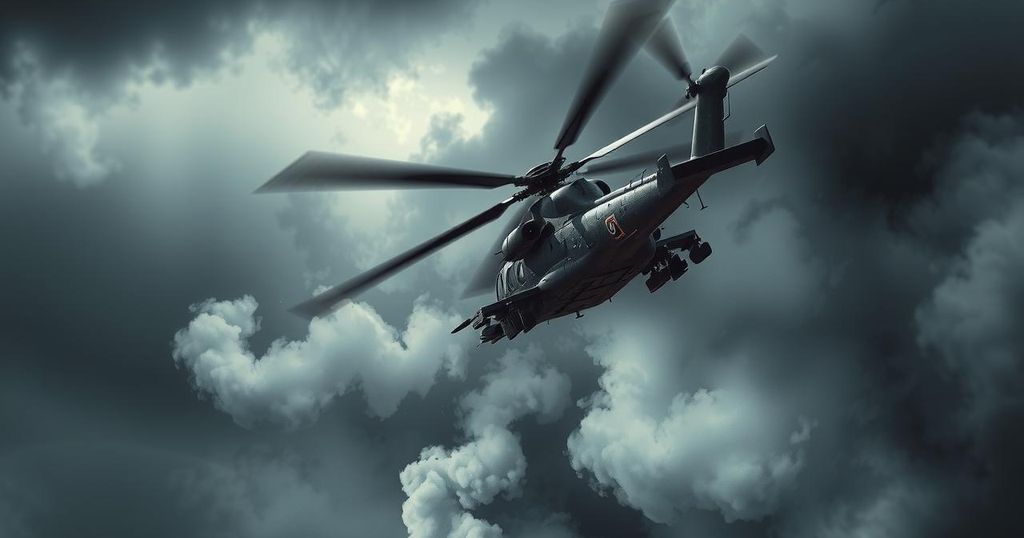The Battle of Mogadishu in 1993 marked a tragic day for U.S. military forces, resulting in the loss of 18 soldiers and two downed Black Hawk helicopters. While initially aimed at addressing famine, the mission faced overwhelming challenges that led to significant combat within Somalia. The aftermath prompted U.S. withdrawal from combat and reshaped American foreign policy regarding international interventions.
Somalia has endured persistent strife, marred by food insecurity and famine-like situations. This dire setting mirrors the 1993 Battle of Mogadishu, where U.S. forces, under UN auspices, faced catastrophic losses, specifically the downing of two Black Hawk helicopters and the tragic deaths of 18 soldiers.
In 1992, the United Nations initiated the United Nations Operation in Somalia (UNOSOM) to combat civil war and hunger, concurrently launching ‘Operation Provide Relief’ to ensure food distribution. However, rampant fighting between warlords impeded aid delivery, compelling the UN to intensify its mission and actions to aid civilians.
To bolster the original mission, the United States, authorized by then-President George H.W. Bush, initiated Operation Restore Hope in December 1992. This led to the creation of the United Nations Task Force (UNITAF), a multinational military group authorized to employ force to establish order. By March 1993, UNITAF transitioned to UNOSOM II, tasked with deeper involvement in Somali affairs, including efforts to restore democracy.
UNOSOM II encountered significant challenges due to opposition from key figures such as Mohammad Farah Aidid of the Somali National Alliance. As aid distribution efforts fell short, the UNOSOM II shifted from humanitarian assistance to political reconstruction, placing it in direct conflict with Aidid’s faction,
The situation escalated with violent incidents involving Pakistani troops and the SNA, culminating in a series of confrontations that led to significant casualties. Following an ambush of Pakistani forces, hostilities intensified, leading to a focus on capturing General Aidid, culminating in a confrontation known as the ‘Battle of Mogadishu.’
In an offensive dubbed ‘Gothic Serpent,’ Task Force Ranger aimed to apprehend Aidid in October 1993. After intelligence indicated a meeting in Mogadishu, U.S. forces initiated an operation that lasted approximately 17 hours. Although they captured SNA personnel, the operation devolved into chaos when the militia shot down two Black Hawk helicopters, resulting in multiple casualties.
The aftermath of the battle saw significant loss of life; 18 U.S. soldiers were killed, and hundreds of Somalis died as well. Public perception of the U.S. military involvement in Somalia shifted dramatically, prompting President Bill Clinton to announce the withdrawal of forces. Subsequently, all U.S. troops were withdrawn by March 1994, with UN operations concluding in March 1995 as violence persisted in the region.
The Battle of Mogadishu remains a defining moment in U.S. military history, marking the bloodiest day for American forces since Vietnam. This incident prompted a reevaluation of U.S. foreign policy concerning international peacekeeping and military engagement. Despite the dire circumstances, some military analysts argue the battle was a tactical victory for the U.S. forces.
The legacy of the battle has been revisited, notably through Mark Bowden’s 1999 book, “Black Hawk Down: A Story of Modern War,” and a subsequent 2001 film adaptation. Today, the humanitarian crisis in Somalia appears unremitting, with approximately 1.7 million children at risk of acute malnutrition, emphasizing the ongoing struggles within the country amidst lingering conflict.
The Battle of Mogadishu serves as a somber reminder of the challenges faced by international military interventions. Despite initial intentions to provide humanitarian assistance, the conflict saw significant military losses and policy reevaluation by the United States. Today, the repercussions of this incident continue to echo within American foreign policy, reflecting both the challenges of peacekeeping efforts and the ongoing humanitarian crisis in Somalia.
Original Source: www.eurasiantimes.com






